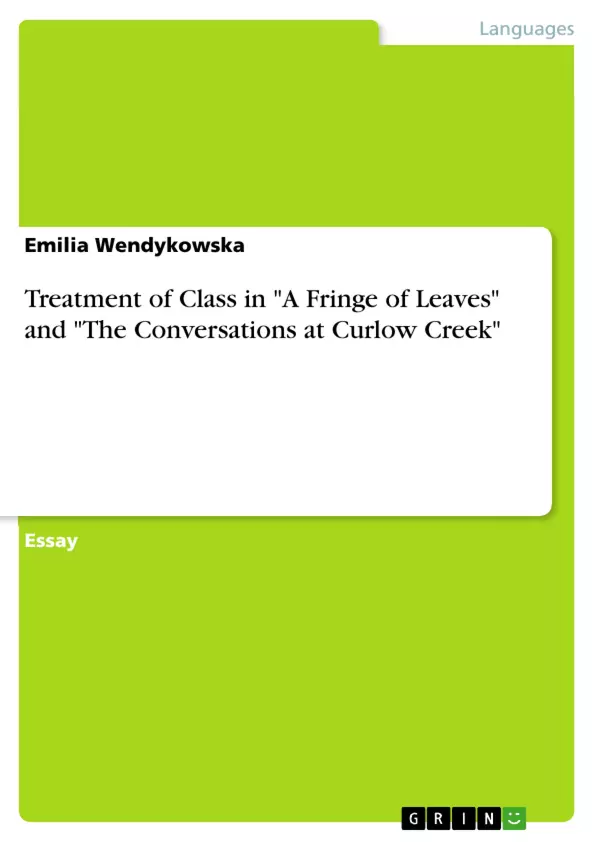The following essays deals with the treatment of class in "A Fringe of Leaves" by Patrick White and "The Conversations at Curlow Creek" by David Malouf.
Inhaltsverzeichnis (Table of Contents)
- Treatment of Class in a Fringe of Leaves and The Conversations at Curlow Creek
- A Fringe of Leaves by Patrick White
- English Middle Class
- Irish Emancipates
- Aborigines
- The Conversations at Curlow Creek by David Malouf
Zielsetzung und Themenschwerpunkte (Objectives and Key Themes)
This essay aims to explore the social structures of Australia and compare the treatment of class and social values in Patrick White's A Fringe of Leaves and David Malouf's The Conversations at Curlow Creek. The essay focuses on the portrayal of different social groups and the underlying tension between these groups in the context of colonial Australia.
- Colonialism and Identity
- Class and Social Hierarchy
- The Impact of Society on the Individual
- The Role of Nature and Culture
- The Power of Memory and Storytelling
Zusammenfassung der Kapitel (Chapter Summaries)
The essay begins by discussing the portrayal of different social groups in Patrick White's A Fringe of Leaves, specifically focusing on the English middle class, Irish emancipates, and Aborigines. The essay examines the tensions between these groups and the prevailing social hierarchies within colonial Australia.
The essay then delves into the treatment of class and social values in David Malouf's The Conversations at Curlow Creek. The essay explores the conflict between the bushrangers and troopers of Irish origin and the impact of exile on the individuals within these groups. The essay also highlights the role of memory and storytelling in shaping the understanding of Australia's colonial history.
Schlüsselwörter (Keywords)
This essay examines the themes of colonialism, identity, class, social hierarchy, exile, memory, and storytelling as they are presented in the context of Australian literature. It analyzes the portrayal of social groups in Patrick White's A Fringe of Leaves and David Malouf's The Conversations at Curlow Creek, with a particular focus on the treatment of class and social values in these works. The essay explores the complex relationship between the individual and society, the influence of cultural and historical contexts on identity, and the power of narratives in shaping our understanding of the past.
- Citation du texte
- Emilia Wendykowska (Auteur), 2012, Treatment of Class in "A Fringe of Leaves" and "The Conversations at Curlow Creek", Munich, GRIN Verlag, https://www.grin.com/document/196806



